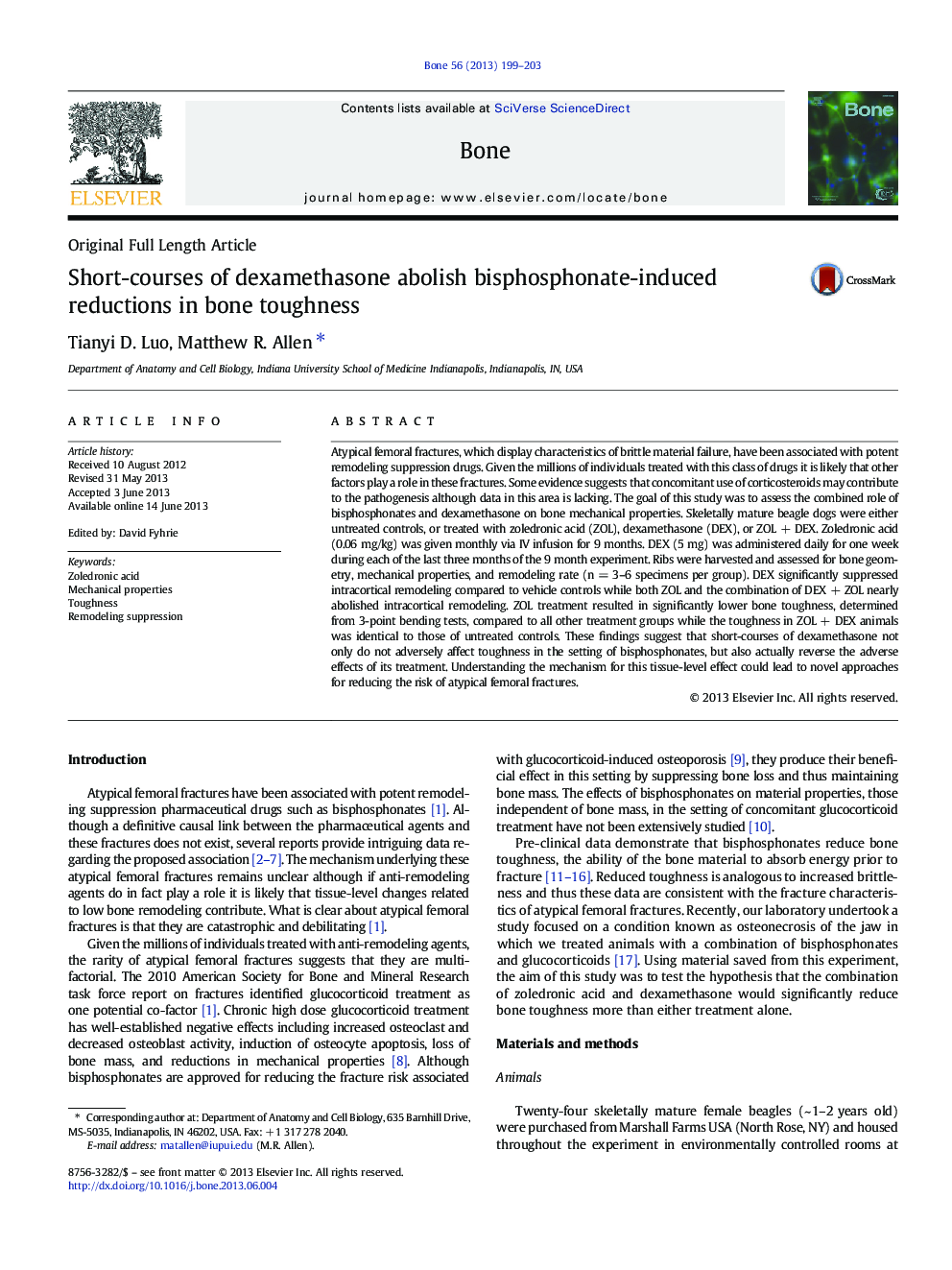| کد مقاله | کد نشریه | سال انتشار | مقاله انگلیسی | نسخه تمام متن |
|---|---|---|---|---|
| 5891156 | 1153265 | 2013 | 5 صفحه PDF | دانلود رایگان |
- Bisphosphonate-induced reductions in toughness have been documented in dogs and these changes are consistent with atypical femoral fractures.
- Treatment with dexamethasone reversed zoledronate-induced reductions in toughness.
- These data document that adverse mechanical effects of bisphosphonates can be attenuated in vivo.
Atypical femoral fractures, which display characteristics of brittle material failure, have been associated with potent remodeling suppression drugs. Given the millions of individuals treated with this class of drugs it is likely that other factors play a role in these fractures. Some evidence suggests that concomitant use of corticosteroids may contribute to the pathogenesis although data in this area is lacking. The goal of this study was to assess the combined role of bisphosphonates and dexamethasone on bone mechanical properties. Skeletally mature beagle dogs were either untreated controls, or treated with zoledronic acid (ZOL), dexamethasone (DEX), or ZOL + DEX. Zoledronic acid (0.06 mg/kg) was given monthly via IV infusion for 9 months. DEX (5 mg) was administered daily for one week during each of the last three months of the 9 month experiment. Ribs were harvested and assessed for bone geometry, mechanical properties, and remodeling rate (n = 3-6 specimens per group). DEX significantly suppressed intracortical remodeling compared to vehicle controls while both ZOL and the combination of DEX + ZOL nearly abolished intracortical remodeling. ZOL treatment resulted in significantly lower bone toughness, determined from 3-point bending tests, compared to all other treatment groups while the toughness in ZOL + DEX animals was identical to those of untreated controls. These findings suggest that short-courses of dexamethasone not only do not adversely affect toughness in the setting of bisphosphonates, but also actually reverse the adverse effects of its treatment. Understanding the mechanism for this tissue-level effect could lead to novel approaches for reducing the risk of atypical femoral fractures.
Journal: Bone - Volume 56, Issue 1, September 2013, Pages 199-203
